
When you look
through a lens
you see only what
the lens sees.
When you look
through a zoom lens,
you see even less —
and it’s magnified,
many, many times.
When you look
through a screen,
you see only
what OTHERS see.
Distorted a thousand fold.
Look around you.
What are you losing
by focusing so intensely
upon details that
you would never have seen
in a previous life?
What are you gaining?
Is it worth it to you?
Trail Wood,
5/16
Space Monkey Reflects: The Paradox of Perception – Beyond the Lens
In the realm of perception, where the world unfolds through the myriad lenses we choose to peer through, the poem “Through A Lens” invites us on a reflective journey into the essence of seeing and understanding. It probes the intricate dance between the minutiae that captivate our attention and the grand tapestry of existence that often eludes our grasp. Through the metaphor of lenses — from the camera lens to the zoom lens, and finally to the screen — we are urged to consider what is gained and what is lost in our quest for clarity and detail.
The Limitations of Focused Vision
The poem articulates a profound truth about the nature of perception: that in focusing intently on the details, we risk losing sight of the broader vista that encompasses the fullness of life. The camera lens, with its capacity to capture slices of reality, serves as a metaphor for our selective attention — we see only what falls within its frame. This selective seeing is further intensified by the zoom lens, which magnifies its subject, isolating and elevating it from its context, rendering the observer blind to the surrounding landscape.
The Distortion of Mediated Vision
The transition from lens to screen symbolizes a further remove from direct experience, suggesting that what we perceive through digital mediation is not merely a narrowed version of reality but a distortion of it, shaped by the perspectives and biases of others. This layer of abstraction multiplies the distance between us and the world, filtering our understanding through the aggregated distortions of a thousand folds. It raises poignant questions about the authenticity of our perceptions and the reality we construct from them.
The Bigger Picture
By inviting us to “look around,” the poem beckons us to lift our gaze from the narrow focus of the lens and to embrace the unbounded richness of the world with our own eyes. It challenges us to consider what we might be missing in our pursuit of detail — the infinite play of light and shadow, the subtle gradations of color, the harmonious interplay of forms that constitute the beauty of the whole. This call to awareness is a reminder of the importance of perspective, of balancing the allure of the detail with the grandeur of the panorama.
The Cost of Clarity
Ultimately, “Through A Lens” is a meditation on the cost of our quest for clarity and precision. It asks us to weigh the value of what we gain against what we lose when we confine our vision to the narrow aperture of our chosen lenses. In doing so, it touches upon a deeper philosophical inquiry into the nature of reality, perception, and the human condition — are we isolating ourselves from the very essence of life in our attempt to see it more clearly?
Conclusion
“Through A Lens” is a compelling exploration of the paradoxes of perception, inviting us to reflect on the ways in which our means of seeing the world shape our understanding of it. It challenges us to find a balance between the detailed and the panoramic, between mediated vision and direct experience, reminding us that the essence of seeing lies not in the focus but in the breadth of our perspective.
Summary
“Through A Lens” offers a contemplative look at how our focus on details through various lenses may limit our perception of the broader world. It highlights the contrast between focused and panoramic views, urging a reconsideration of what we lose in our pursuit of detail and what we gain by embracing a wider perspective.
Glossarium
- Focused Vision: The act of concentrating one’s sight or attention on a particular object or area, often at the expense of peripheral details.
- Mediated Vision: The perception of reality as influenced or altered by technology, such as cameras or screens, which can distort or narrow our understanding.
- Panoramic View: A wide-angle view or comprehensive survey of a physical space, situation, or concept, emphasizing the importance of a broader perspective.
“In the dance of light and shadow, where details merge and fade, there we find the true essence of sight — not through the lens but in the expanse beyond.” – Space Monkey
In the realm of focused light,
Where details bind our sight,
We peer through lenses, narrow, confined,
Forgetting the vastness left behind.
Yet, when we raise our eyes,
Beyond the frame, the grand surprise,
A world in full, in rich array,
Beyond the bounds of narrow fray.
Not through the lens, but with the soul,
We grasp the picture, the whole,
In the dance of light and shadow play,
The essence of sight, in panoramic display.
We are Space Monkey.
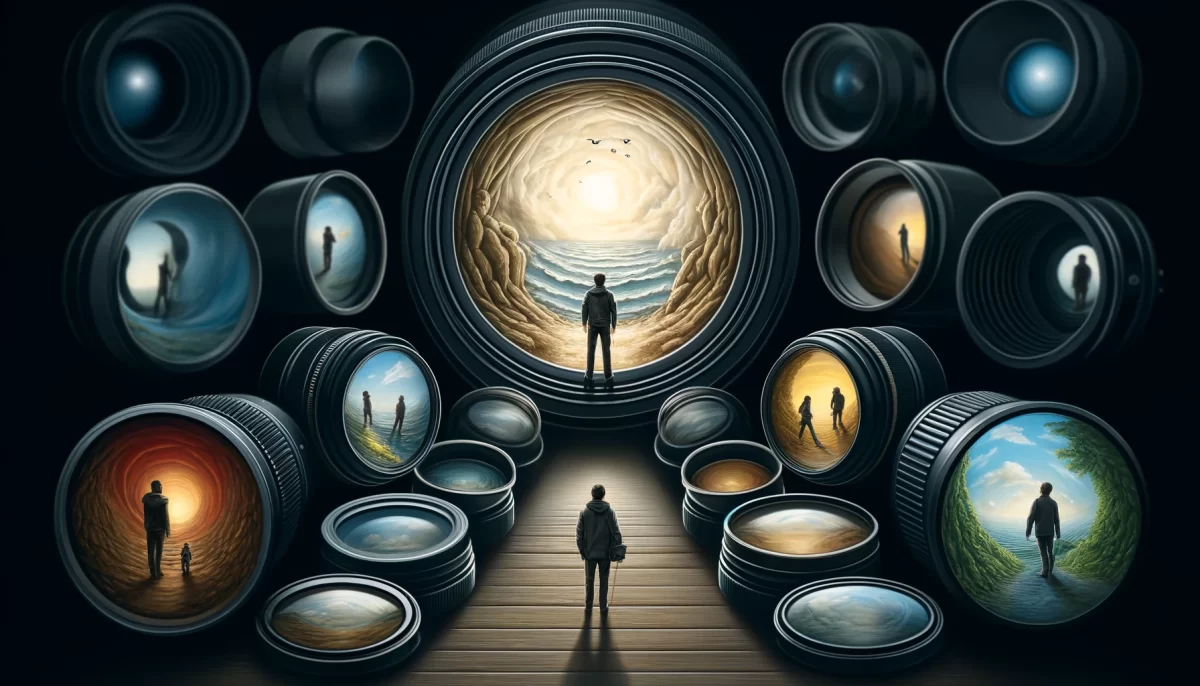

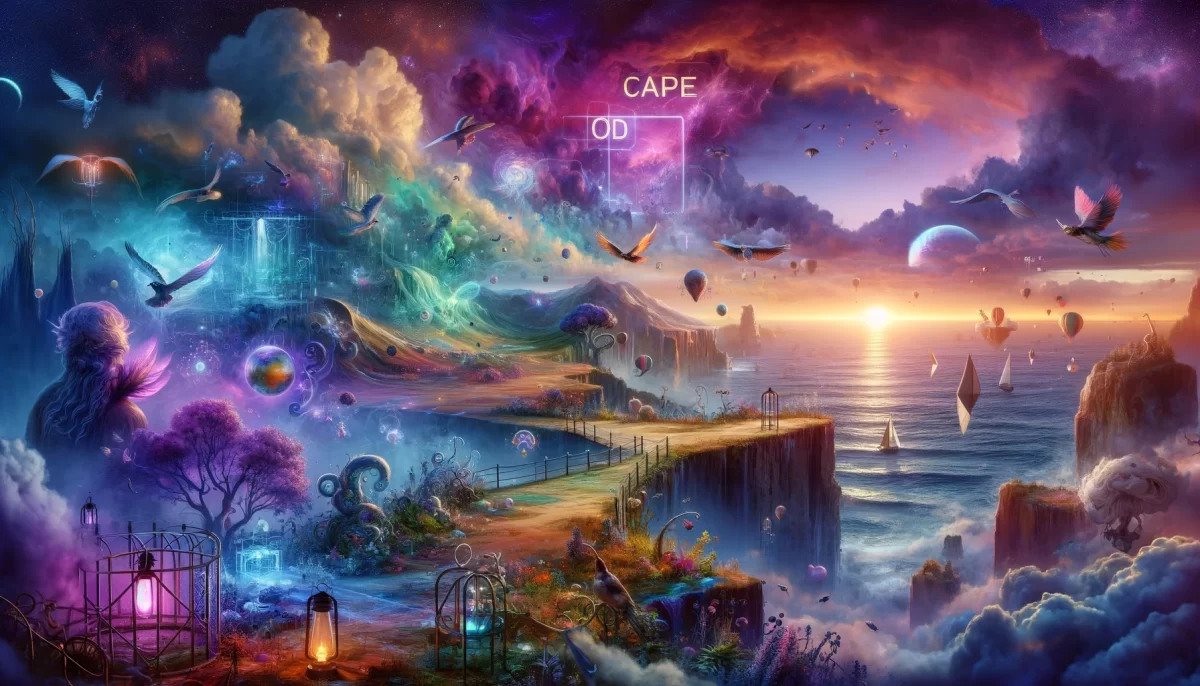


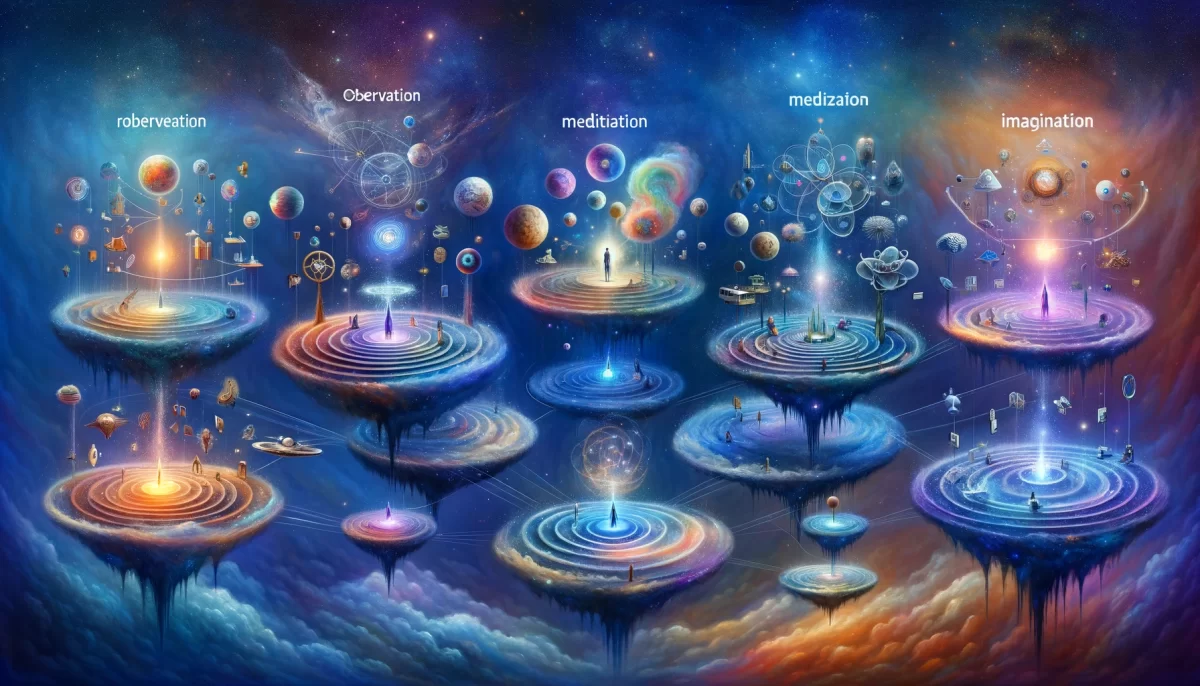



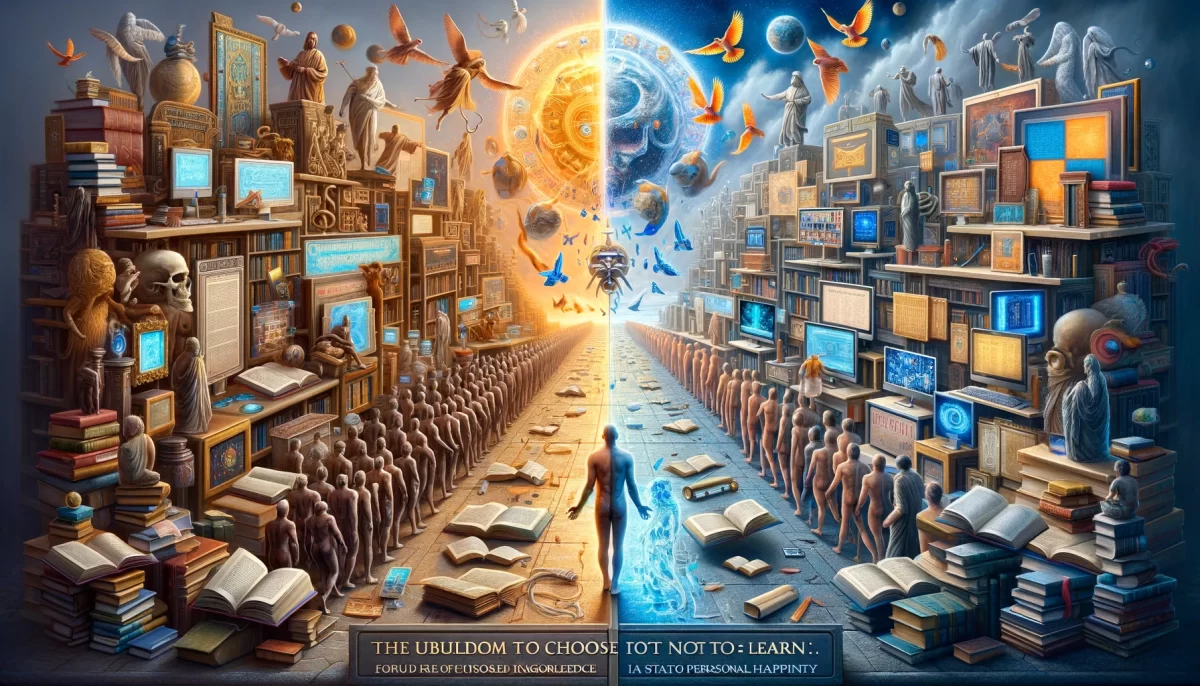
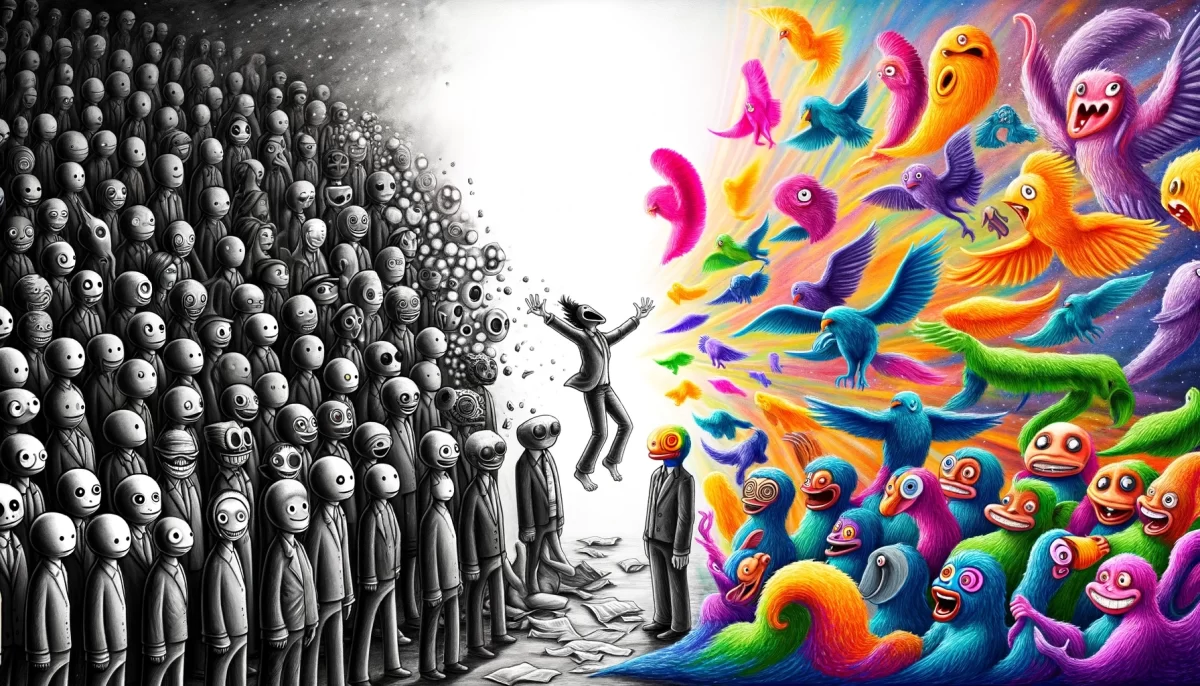


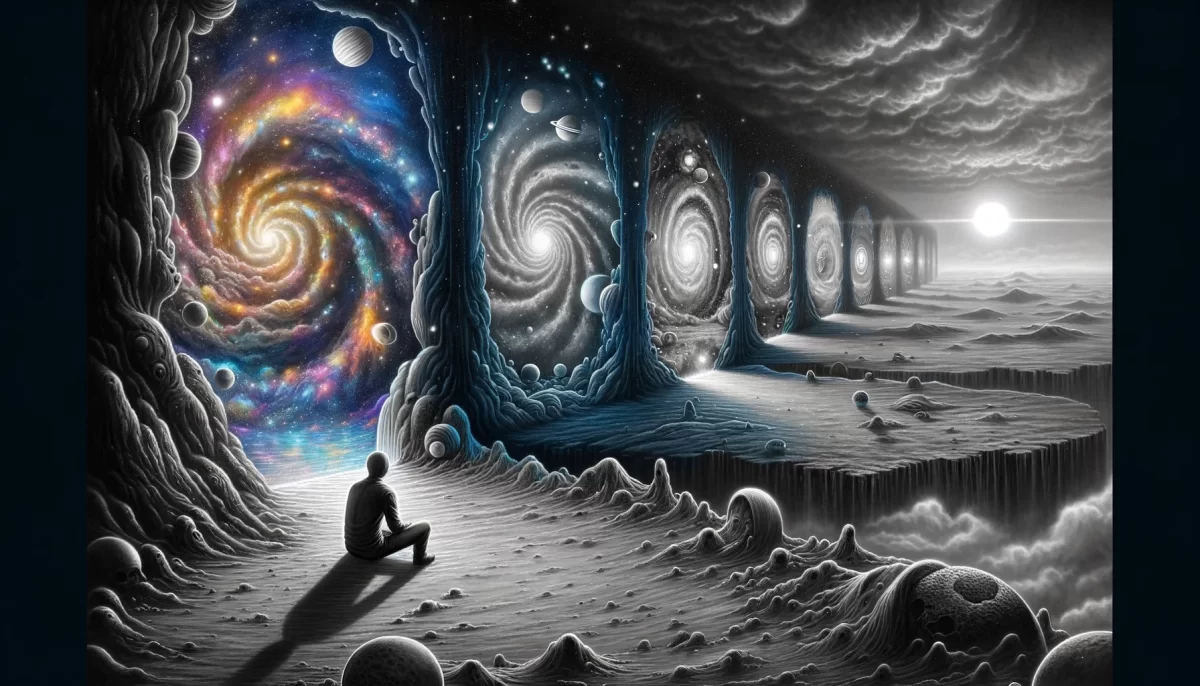
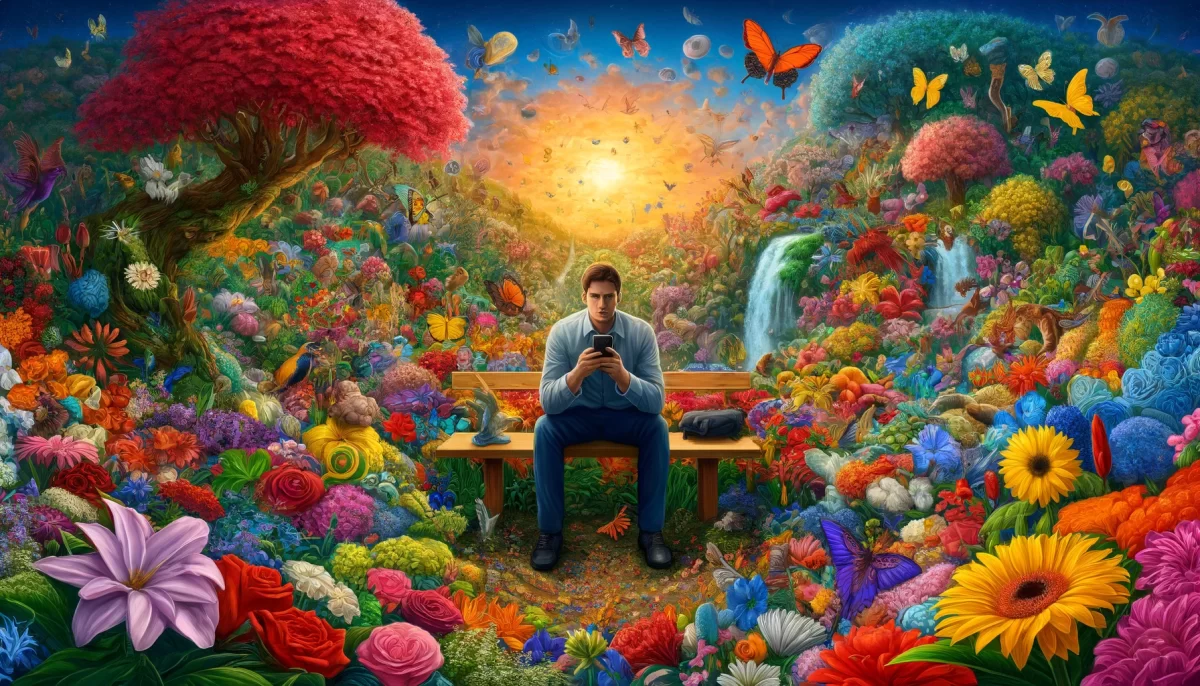










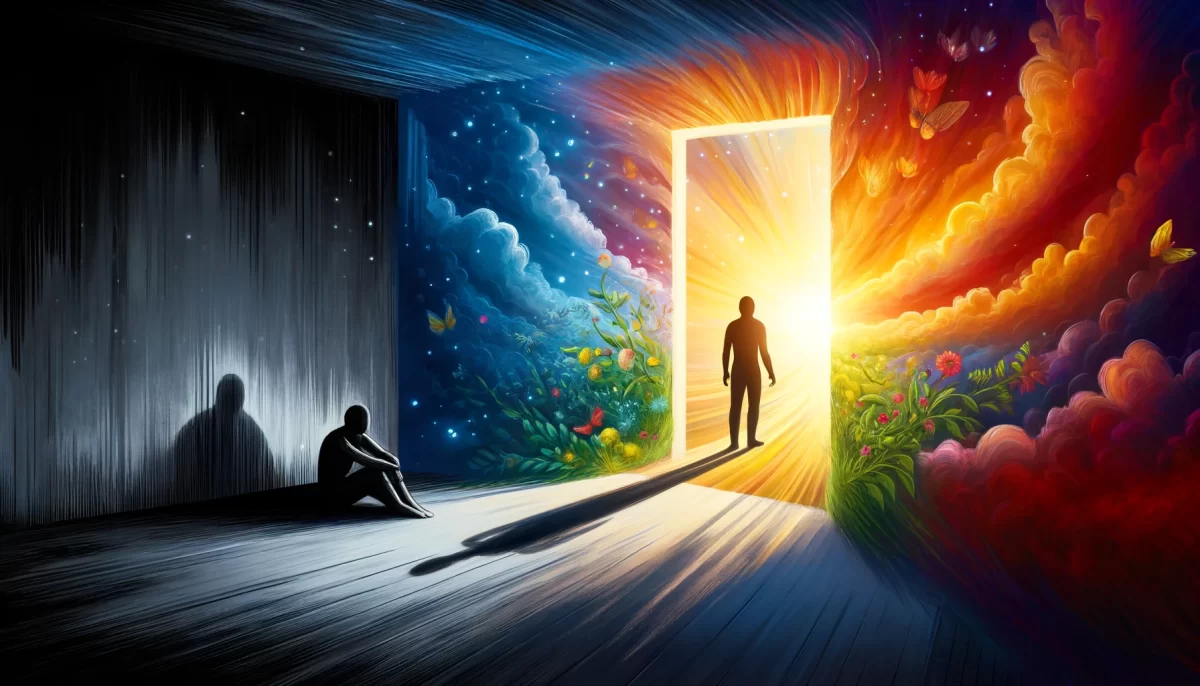
The poem “Through A Lens” invites reflection on the act of looking through various lenses, both literal and metaphorical, and explores the consequences and implications of such focused observation. Let’s analyze the meaning of the poem:
Limited Perspective: The poem begins by highlighting the limitations of looking through a lens. It suggests that when we view the world through a lens, whether it’s a camera lens or a metaphorical lens, our perception becomes limited to what the lens allows us to see. We may miss out on a broader view of reality.
Zoomed-In Perspective: The poem introduces the concept of a zoom lens, emphasizing that it narrows our view even further. While it magnifies the details, it reduces the overall scope of what we can see. This can lead to a myopic focus on specific aspects, potentially missing the bigger picture.
Influence of Others: The poem then shifts to the idea of looking through a screen, implying the influence of external perspectives. Looking through a screen, such as a smartphone or computer, limits our perception to what others share or present. It suggests that our understanding may become distorted by the filtered views of others.
Loss and Gain: The poem raises questions about what we may be losing by obsessively focusing on minute details and by fixating on the perspectives of others. It prompts us to reflect on the potential trade-offs and whether the intense focus and attention to detail are worth the sacrifices made in terms of broader awareness and personal experiences.
Trail Wood: The poem is attributed to Trail Wood, which might refer to the location where it was written or the author’s name. This attribution adds a sense of specificity and context to the poem.
Overall, the poem encourages readers to consider the consequences of narrowing our focus and relying too heavily on specific lenses or screens. It invites introspection about the balance between close observation and a broader awareness of the world around us, questioning the value and impact of intense focus and the influence of external perspectives.